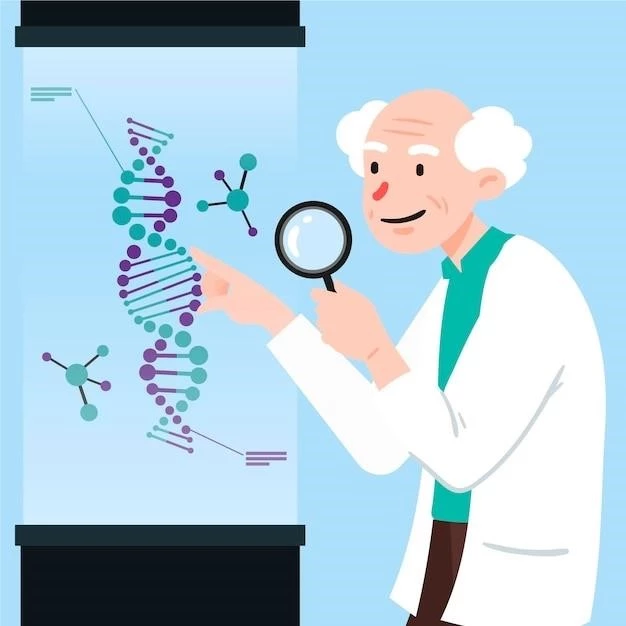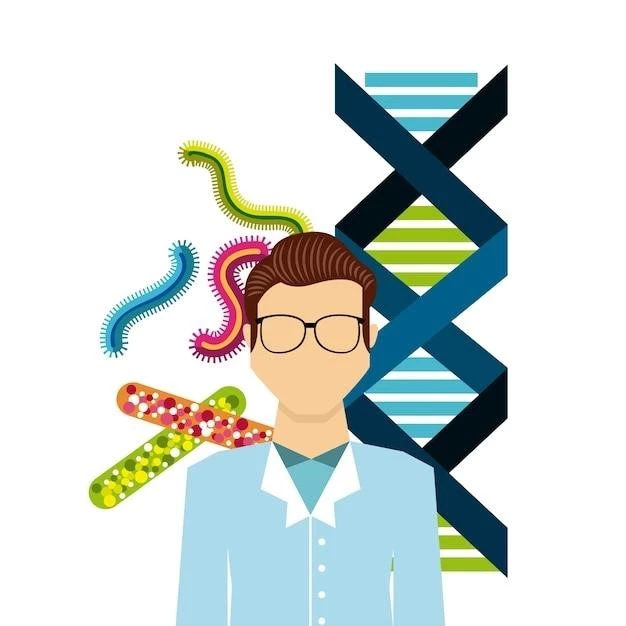Overview of Chromosome 3 Duplication Syndrome
An overview of Chromosome 3 Duplication Syndrome, covering causes, symptoms, diagnosis,
Chromosome 3 Duplication Syndrome⁚ An Introduction
Chromosome 3 Duplication Syndrome is a genetic condition characterized by extra genetic material in chromosome 3. This rare syndrome can lead to various developmental delays and medical issues. Understanding its implications is crucial for proper management and support.
Causes and Risk Factors of Chromosome 3 Duplication Syndrome
Chromosome 3 Duplication Syndrome is mainly caused by the duplication of genetic material in chromosome 3. Risk factors include parental chromosomal abnormalities and advanced maternal age.
Genetic Causes of Chromosome 3 Duplication Syndrome
The primary genetic cause of Chromosome 3 Duplication Syndrome is the abnormal duplication of genetic material on chromosome 3. This duplication can result from errors during cell division or genetic inheritance, leading to the characteristic features and challenges associated with the syndrome.
Risk Factors Associated with Chromosome 3 Duplication Syndrome
Risk factors for Chromosome 3 Duplication Syndrome include parental chromosomal abnormalities٫ advanced maternal age٫ and potential genetic predispositions. Understanding these risk factors can help in early detection and intervention for individuals at risk of the syndrome.
Symptoms and Clinical Presentation of Chromosome 3 Duplication Syndrome
Individuals with Chromosome 3 Duplication Syndrome may experience developmental delays, intellectual disabilities, distinctive facial features, and other health issues. Understanding the symptoms is crucial for early intervention and management.
Common Symptoms of Chromosome 3 Duplication Syndrome
Common symptoms of Chromosome 3 Duplication Syndrome include developmental delays٫ intellectual disabilities٫ speech and language delays٫ behavioral challenges٫ distinctive facial features٫ and potential heart and kidney abnormalities. Early recognition and comprehensive care can improve outcomes for individuals with this condition.
Diagnosis and Genetic Testing for Chromosome 3 Duplication Syndrome
Diagnosis of Chromosome 3 Duplication Syndrome involves genetic testing, clinical evaluation,
Diagnostic Procedures for Chromosome 3 Duplication Syndrome
Diagnostic procedures for Chromosome 3 Duplication Syndrome include chromosomal microarray analysis, fluorescence in situ hybridization (FISH), and karyotype analysis. These tests help in identifying the duplication on chromosome 3 and guiding tailored management strategies for affected individuals.
Treatment Options for Chromosome 3 Duplication Syndrome
Available treatment modalities focus on addressing individual symptoms and supporting developmental needs.
Available Treatment Modalities
Treatment modalities for Chromosome 3 Duplication Syndrome may include early intervention services, speech therapy, occupational therapy, physical therapy, educational support, behavioral interventions, and regular monitoring by a multidisciplinary team. Individualized care plans can help optimize outcomes for affected individuals.
Prognosis and Complications of Chromosome 3 Duplication Syndrome
Prognosis for individuals with Chromosome 3 Duplication Syndrome varies based on the severity of symptoms.
Prognosis for Individuals with Chromosome 3 Duplication Syndrome
The prognosis for individuals with Chromosome 3 Duplication Syndrome can vary significantly. Some may lead relatively independent lives with appropriate support, while others may face more challenges related to developmental delays, intellectual disabilities, and associated health issues. Early intervention and comprehensive care play a crucial role in improving outcomes and quality of life for affected individuals.
Research and Advances in Understanding Chromosome 3 Duplication Syndrome
Current research efforts aim to further enhance understanding, genetic testing, and therapeutic approaches.
Current Research Efforts
Current research on Chromosome 3 Duplication Syndrome focuses on identifying new genetic markers, exploring therapeutic interventions, understanding the impact on neurodevelopment, and improving outcomes for affected individuals. Collaborative studies aim to enhance knowledge and care practices for this rare genetic condition;

Support Resources for Individuals and Families Affected by Chromosome 3 Duplication Syndrome
Support groups and organizations provide valuable assistance and community for affected individuals.
Support Groups and Organizations
Support groups and organizations dedicated to Chromosome 3 Duplication Syndrome offer emotional support, educational resources, advocacy, and connections to families facing similar challenges. These groups play a vital role in providing guidance and fostering a sense of community for individuals and families affected by the syndrome.
